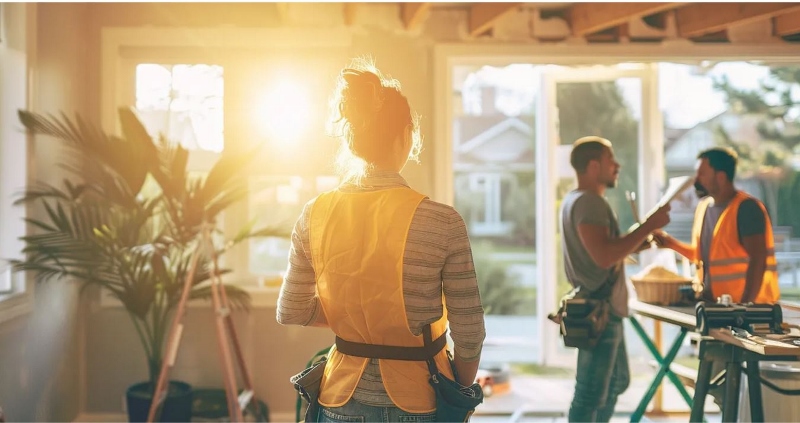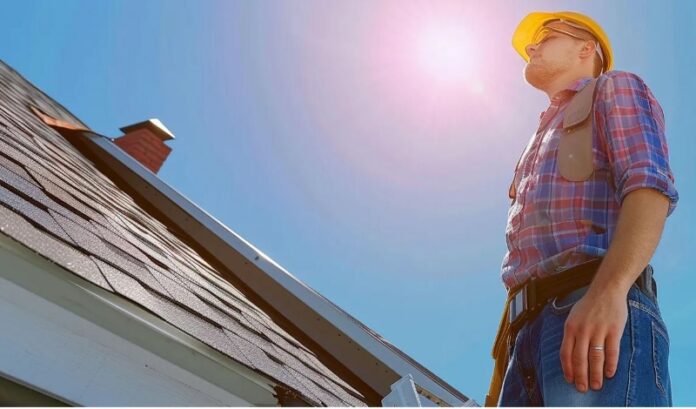Buying a fixer-upper home can seem like a daunting proposition, but with the right knowledge, it can also be an incredibly rewarding endeavor. These types of properties often come with a lower initial price tag and the potential for significant appreciation after renovations. If you’re embarking on the journey to transform a diamond in the rough into your dream home, this guide is for you. Keep reading to discover the key factors that will help you make wise decisions every step of the way.
Financing Options for Fixer-Upper Home Purchases
Financing a fixer-upper is unique because it combines the purchase price with renovation costs. A popular option is the Federal Housing Administration’s 203(k) loan, which allows buyers to borrow based on the home’s estimated value after improvements. Investigate all the loan specifics to ensure they align with your renovation goals and budget.
Conventional loans may be more suitable for buyers with significant savings or the ability to obtain funds elsewhere. These loans typically offer more flexibility in terms of how you use the funds, but they require a thorough understanding of the lending terms and interest rates.
Regardless of the chosen financing method, it’s wise to consult financial experts. Mortgage brokers and financial advisors can provide invaluable insights into the different options. Consider discussing these matters with Clovered, a platform known for guiding individuals through complex property decisions to find the right insurance for their circumstances.
Essential Tips for Conducting a Thorough Home Inspection
An exhaustive home inspection is a cornerstone of a successful fixer-upper purchase. Enlist a qualified inspector to uncover any hidden issues that could become costly down the line. A thorough inspection goes beyond the surface, examining the integrity of the structure, the state of the roof, and the condition of the HVAC, electrical, and plumbing systems.
Don’t overlook the value of specialty inspections for pests, mold, or radon. These issues are prevalent in older homes and can demand extensive remediation. Make sure to attend the inspection to ask questions and understand the inspector’s findings first-hand.
Beyond the current state of the home, consider its growth potential. Can the structure support an addition? Will the existing layout allow for the changes you envision, such as the installation of custom glass doors for a modern touch? Use the inspection to inform your renovation plans.
Assessing the True Cost of Renovation in a Fixer-Upper
Before plunging into a fixer-upper purchase, getting an accurate estimate for renovations is critical. Start by itemizing each project to create a comprehensive budget plan. Keep in mind that structural repairs, such as fixing a compromised foundation, can be far more extensive and costly than cosmetic updates.
Consulting with contractors early on can provide clarity on the scope and expense of the work needed. It’s also wise to have a contingency fund for unforeseen issues. As renovation projects often uncover additional problems, having a financial buffer can safeguard against budget overruns.
In assessing costs, don’t forget about the less glamorous but essential upgrades, like plumbing and electrical systems. These can consume a significant part of your budget but are critical to the functionality and safety of your home. Prioritize these systems before aesthetic enhancements to ensure a secure investment.
Navigating the Renovation Process Post-Purchase

Once the fixer-upper is yours, the real work begins. Organize the renovation into stages, tackling structural and mechanical updates before cosmetic changes. Careful scheduling can reduce downtime and accelerate the overall progress, leading to a more effective renovation process.
As renovations proceed, maintain open communication with your contractors. Ensuring everyone is on the same page regarding expectations and timelines is vital to the success of the project. Regular site visits will help you stay informed about the work being done and address any concerns promptly.
Altogether, buying and renovating a fixer-upper can be a smart investment that leads to a personalized and potentially profitable home. Overall, by comprehensively understanding the process, assessing costs accurately, securing the right financing, being meticulous during the inspection, and strategically navigating renovations, you’re well-positioned to capitalize on the promise that a fixer-upper home offers.

